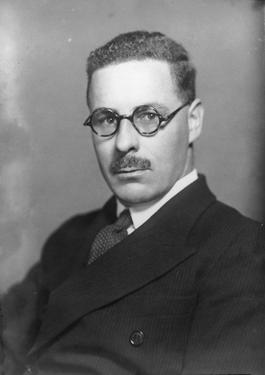John Brophy (writer) facts for kids
John Brophy (born December 6, 1899 – died November 13, 1965) was a British soldier, writer, and journalist. He wrote over 40 books. Many of his stories were inspired by his own experiences during World War I.
John Brophy was born in Liverpool, England, in 1899. His family had Irish roots. When he was only 14 years old, he lied about his age to join the British Army during World War I. He served for four years as an infantry soldier. In 1918, he was honorably discharged from the army.
After the war, John went to the University of Liverpool. A government grant helped pay for his studies. He earned his Bachelor of Arts degree in 1922. Then, he studied at Durham University for a year. There, he learned about Psychoanalysis and got a teaching certificate in 1923. In 1924, he married Charis Weare Grundy, who was a teacher. They had one child together, a daughter named Brigid Brophy, who also became a famous author.
After university, John Brophy taught at a school in Cairo, Egypt, for two years. He had to return to England because his wife became ill. His wife later wrote a book about her time in Egypt called Egyptian Portrait. Back in England, John worked in a general store and as an advertising writer. Soon, he became a full-time author. His first novel, The Bitter End, was published in 1928. He went on to write about 40 books. Most of these books were based on his time as a soldier in World War I. Some of his early works included Pluck the Flower and Paul Lavelle (both from 1929). He also put together a collection of stories called The Soldier's War.
In 1930, John Brophy worked with Eric Partridge to edit a book called Songs and Slang of the British Soldier, 1914–1918. This book was later updated in 1965 and renamed The Long Trail. Throughout the 1930s, he published at least one new novel every year. He found great success in 1939 with his book Gentleman of Stratford. This novel was a fictional story about the life of William Shakespeare.
John Brophy also worked as a critic for various newspapers and magazines in London. These included The Daily Telegraph and Time and Tide. He also reviewed books and shows for the BBC. From 1940 to 1943, he was the editor of John O'London's Weekly. During World War II, he joined the Home Guard. He wrote helpful handbooks and guides for them. In 1945, he published a book about the Home Guard called Britain's Home Guard. This book featured illustrations by Eric Kennington.
During the war years, Brophy also wrote an "entertainment" piece called Solitude Island (1941). He wrote several war novels too. One famous one was Immortal Sergeant (1942). This book was made into a film in 1943, starring Henry Fonda. Other war novels included Spear Head (1943) and Target Island (1944).
His 1964 book about W. Somerset Maugham was written for the British Council. John Brophy continued to write many novels. Some of his later books were City of Departures (1946), A Woman from Nowhere (1946), Sarah (1948), and Julian's Way (1949). He also wrote Turn the Key Softly (1951), which was made into a movie in 1953. Another well-known book was The Day They Robbed the Bank of England (1959). This book also became a film in 1960, starring Peter O'Toole and Aldo Ray. John Brophy was a member of several important groups, including the Reform Club, the English PEN, and the Society of Authors.
John Brophy passed away in November 1965. He died from heart failure at the Royal Waterloo Hospital in Lambeth, London.
Selected novels
- The Bitter End (1928)
- Waterfront (1934)
- Gentleman of Stratford (1939)
- Green Ladies (1940)
- Immortal Sergeant (1942)
- Spear Head (1943)
- Target Island (1944)
- Portrait of an Unknown Lady (1945)
- Turn the Key Softly (1951)
- The Day They Robbed the Bank of England (1959)
 | William L. Dawson |
 | W. E. B. Du Bois |
 | Harry Belafonte |


